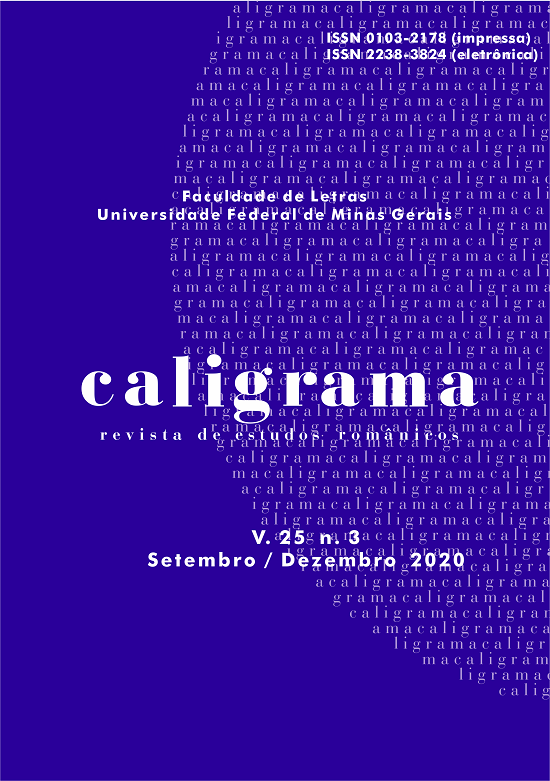Lendo os parágrafos iniciais do conto Dayiva, da escritora haitiana Évelyne Trouillot / Reading the First Paragraphs of the Short Story Dayiva, by Haitian Writer Évelyne Trouillot
DOI:
https://doi.org/10.17851/2238-3824.25.3.163-181Parole chiave:
Évelyne Trouillot, Dayiva, literatura de expressão francesa, literatura haitiana, Francophone literature, Haitian literature.Abstract
Resumo: Este trabalho refaz o percurso de parte de uma pesquisa de iniciação científica centrada no estudo do conto Dayiva, de Évelyne Trouillot (escritora haitiana de expressão francesa), publicado no livro Parlez-moi d’amour (2002). Na primeira parte, apresentamos o contexto histórico, político e cultural haitiano a partir de Laguerre (1989) e Figueiredo (2006); Trouillot (1990) guiou nossa compreensão do contexto histórico específico em que o conto está inserido – a ditatura de Papa Doc – e de particularidades lexicais, como os termos noir e mulâtre; aproximamo-nos do problema religioso graças a Desmangles (1992) e os trabalhos de Dash (1981), Césaire (1978) e Corcoran (2007) permitiram-nos melhor situar as questões literárias do ambiente haitiano; por fim, com Ferreira (2006), investigamos o conceito de négritude. Todo este aparato crítico-teórico nos ajudou a ler melhor o conto, propiciando uma aproximação da multiplicidade de suas referências. Na segunda parte deste artigo, apresentamos a autora e lemos os primeiros parágrafos do conto, mostrando, em uma análise narratológica e temática, como alguns aspectos culturais, históricos e geográficos do Haiti ganham forma literária, com particular atenção aos aspectos linguísticos, políticos, religiosos e naturais, mais especificamente, ao crioulo haitiano, ao regime ditatorial, ao vodu e à presença do mar.
Palavras-chave: Évelyne Trouillot; Dayiva; literatura de expressão francesa; literatura haitiana.
Abstract: This paper retraces part of a scientific initiation research centered on the study of the short story Dayiva, by Évelyne Trouillot (a French-speaking Haitian writer), published in the book Parlez-moi d’amour (2002). In the first part, we present the Haitian historical, political and cultural context from Laguerre (1989) and Figueiredo (2006); Trouillot (1990) guided our understanding of the specific historical context in which the story is inserted – the dictatorship of Papa Doc – and of lexical particularities such as the terms noir and mulâtre; we approached the religious problem thanks to Desmangles (1992) and the works of Dash (1981), Césaire (1978) and Corcoran (2007) allowed us to better situate the literary questions of the Haitian environment; finally, with Ferreira (2006) we investigated the concept of négritude. All this critical-theoretical apparatus helped us to better read the tale, providing an approach to the multiplicity of its references. In the second part of this article, we present the author and read the first paragraphs of the story, showing, in a narratological and thematic analysis, how some cultural, historical and geographic aspects of Haiti take literary form, with particular attention to the linguistic, political, religious and natural aspects, more specifically, the Haitian Creole, the dictatorial regime, voodoo and the presence of the sea.
Keywords: Évelyne Trouillot; Dayiva; Francophone literature; Haitian literature.





